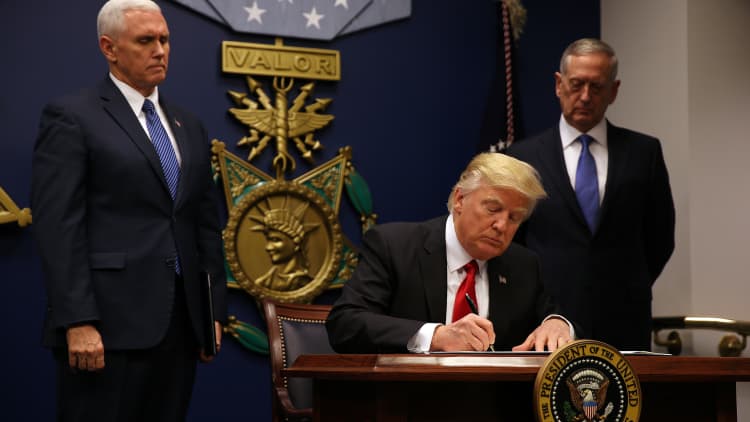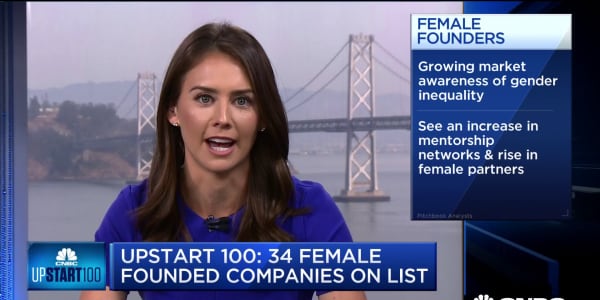President Donald Trump has vowed that for every new regulation, two old ones must be eliminated. An executive order he signed in February declared "it is the policy of the United States to alleviate unnecessary regulatory burdens placed on the American people." But not all businesses feel the burden, and some want more regulation, not less.
When asked about regulations they'd like to see eliminated, changed or created, many of the founders of companies on the first-ever CNBC Upstart 25 list called for regulations they'd like to see created, not stripped away. An exception was a call for less regulation on the commercial use of drones, since some companies on the list — Zume Pizza and Drone Deploy — are utilizing this technology to grow their business.
The types of regulations called for range from increased requirements around family leave to standardization contracts for musicians. But the common theme is that companies would welcome new rules as an opportunity to gain a competitive advantage and grow their businesses. Here are two that topped their wish list.
Product ingredient disclosures
The best example of this is Lena Dunham-backed LOLA, a New York-based upstart making feminine care and hygiene products free of what they say are harmful additives, chemicals and dyes.
"The Food and Drug Administration doesn't require feminine-care brands to disclose what's in their products," says LOLA co-founder Jordana Kier. "We'd love to see a movement to require full ingredient transparency across the industry."
That's unlikely to come under a Trump administration, whose recent budget proposal calls for a $15.1 billion cut to the Tom Price-led Department of Health and Human Services, the department that houses the FDA, the CDC, Medicare and Medicaid, among other government institutions.

It's not just start-up founders of feminine-care products that are aiming for more transparency regulations from the FDA. Nima, a portable gluten sensor created by CEO Shireen Yates, would like to see more regulations against food service companies who attempt to dupe their customers.
"I would like more oversight and transparency around restaurant menu labeling, with better data to support claims made to consumers," Yates says. "Knowledge is delicious."
Paid family leave
The United States is one of just two developed nations — along with New Guinea — to not provide paid benefits to women on maternity leave, according to the International Labor Organization. At least three of the Upstart 25 companies found this unacceptable.
Canadian-born CEO Lorna Borenstein is the founder of Grokker, an on-demand video platform for fitness enthusiasts. Borenstein explains the benefits of her native country's policy on paid family leave.
"Let's face it," Borenstein tells CNBC. "We can't be productive back at work when we are sleep deprived or yearning for bonding with a new baby we haven't had sufficient time with."
The founders of CNBC Upstart 25 companies Dia&Co and Nima expressed similar sentiments and added their belief that secondary caregivers should receive paid leave, too.
"We find that providing both parents with leave makes it clear that no employee needs to worry about potential professional setbacks should they choose to take leave," Dia&Co founder Nadia Boujarwah says. "This should be the norm, not the exception."






